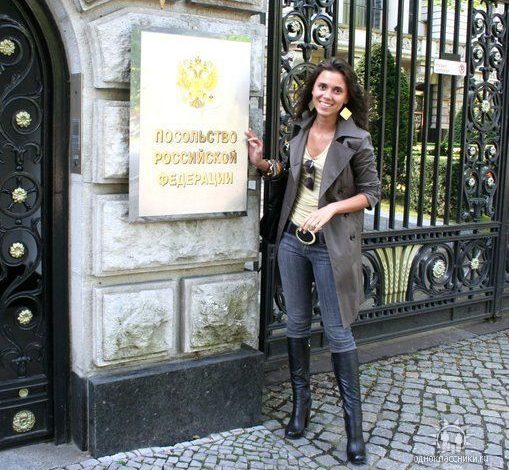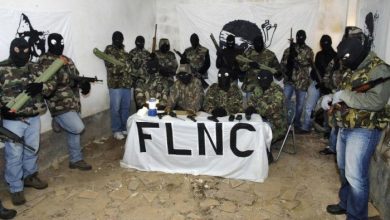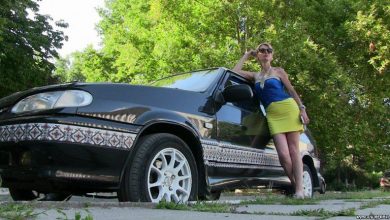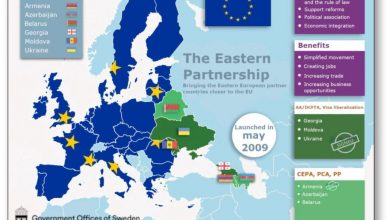Natalia Morar: Someone wants to become a movie star
Moldova rarely comes to the attention of international news, but today the views are riveted to Chisinau. April 5 parliamentary elections unexpectedly ended in a political crisis. The ruling communist party did not receive the necessary majority in parliament for the election of the president, and the opposition announced fraud during the vote. As a result, the Constitutional Court approved the dissolution of parliament and the holding of new elections.
The crisis spilled onto the street. On April 6, thousands of young Moldovans participated in demonstrations under the auspices of a few Moldovan non-governmental organizations. But peaceful demonstrations resulted in riots, which resulted in pogroms in the buildings of parliament and the presidential administration. There are victims. Several hundred people were arrested: the opposition claims that detainees were brutally beaten.
The head of the Think Moldova Foundation, journalist Natalia Morar, acknowledges her participation in organizing peaceful protests. The euronews correspondent met with Morari in Chisinau: she cannot leave the country because of charges of inciting riots.
euronews: Natalya, thank you very much for taking the time to give us an interview. The Communist Party of Moldova did not receive the necessary majority in parliament. Do you think this is the success of the protests that you organized with other activists?
Morar: I do not think that this is the victory of only (participants) of the protests – this is the victory of the whole country. The fact that the opposition did not vote for the candidate from the Communists was a serious test for our country, and it successfully passed it.
euronews: Tell us more about why young Moldovans are so critical of the Communists and their rule?
Morar: I know many people who were waiting for the results of these elections and thought this way: if the opposition wins, I will stay and will continue to work and study. But if the Communists win again, I will leave here at least for the next four years. Our elections were not fair, if only because not all politicians have free access to the media. If you go outside Chisinau, drive away just 30 km, then I will no longer have a chance to see opposition representatives on TV. There will be only solid communists. And even if someone from the opposition appears on the screen, then accompanied by this kind of comment: these are criminals, they did something, they did it, they don’t do anything, they just sleep in parliament and that’s all …
euronews: At first the protests were peaceful, but then clashes began, there were dead. Are you sorry about that?
Morar: Yes, of course. I am sorry – like any other person who feels any responsibility for our common future. And even if I didn’t live here, I would regret what happened. Violence is terrible, I apologize for that.
euronews: Europeans know very little about Moldova, often describe it as the poorest country in Europe. How serious is the situation here for young people?
Morar: All young people seek to leave the country. This is the worst. Yes, we have some kind of business, of course, we have something to do. But, but, but – there are a lot of different “buts” … Even if your business starts to make a profit, it becomes really interesting, you should not believe in your bright future. Once a man comes to you and says: if you want to keep the business – let’s share, give money, if you don’t want to – you will go to prison. And this person, as a rule, is associated with a large family in power.
euronews: You also left Moldova in 2002. Why?
Morar: My story is the story of any Moldovan girl. While the Communists are in power, I really do not believe that I can find myself here, achieve something.
euronews: From 2002 to 2007 you lived and worked in Russia, but in 2007 everything suddenly ended. What happened
Morar: Once, when I was returning from a business trip, they arrested me at the airport and said: I’m sorry, but you no longer have the right to live in Russia and even enter this country. They didn’t explain anything – they just introduced themselves as employees of “certain services”. These people did not specify where they came from, but they said that they have a document from the Central Directorate of the FSB of Russia.
euronews: Recall, Natalia Morar, an employee of the Russian New Times magazine wrote about corruption in Russia. She was denied entry to Russia a few days after the appearance of the article “The Black Cashier of the Kremlin” on the illegal financing of parties. Then Morar was denied citizenship of the Russian Federation. But the Moldovan authorities do not like the activities of Morar. The authorities consider her and other oppositionists to be agents of Romanian influence. Part of the Moldovan youth is sure that their country should focus not on Russia, but on Romania, an ethnically and linguistically close neighbor, as well as on the European Union …
euronews: Many young Moldovans have left the country in the past, and many more will do so in the future. Why did you decide to stay?
Morar: Someone wants to live in Manhattan, someone wants to become a movie star, someone wants to be a doctor. And I want to change the world around me. Such young people exist, and I believe that I belong to this category. Maybe if a critical mass of people accumulate who want to live in another country, but here, in Moldova, something will change.
euronews: Moldova is often called a forgotten country, although it borders on the European Union. What would you like to say to European politicians?
Morar: In fact, I perfectly understand that solving our problems is not the business of the European Union. Why should they do this? I understand them, this is completely normal for any country and federation. But we (Moldovan citizens) all the time strive to the EU countries, we want to find work there. And therefore, Europe needs normal relations with its neighbor.
It would be better for the European authorities to listen not only to Moldovan officials, but also to meet more often with representatives of non-governmental organizations, with journalists, with different people who live here and do not share the official point of view.
euronews: Is it good to live in Chisinau?
Morar: Depends on us. We can turn Chisinau into a real European capital, I am sure of that. Give us 30 years and you will see a completely different city, I promise you.
This post is also available in:
 English
English  Русский (Russian)
Русский (Russian)





